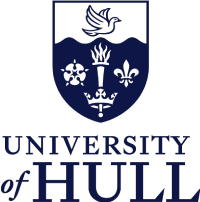Applications are invited for an exciting 3-year fully funded PhD studentship to commence in September 2023.
This PhD project strives to develop a new approach for the modular design and assembly of theragnostic radiopharmaceuticals. The clinical value of theragnostics for the diagnosis and treatment of disease has been evidenced by prominent phase 3 clinical trials. It is recognised that desirable pharmacokinetic properties, which result in increased target uptake and retention, but reduce non-target accumulation, are vital to ensure maximum therapeutic efficacy and minimise side-effects. In this project, a new platform technology to facilitate convenient modular assembly of theragnostic radiopharmaceuticals will be developed and evaluated in vitro and in vivo. This approach will enable the rapid development of large libraries of radioconjugates, and accelerate the development of novel theragnostic agents for clinical translation.
The successful candidate will be based on the University of Hull campus and join our thriving and diverse research community in the Positron Emission Tomography Research Centre (PETRC) and our newly formed Hull University Theragnostics (HUT) cluster. The candidate will have opportunities to work at our new Molecular Imaging Research Centre (MIRC) at Castle Hill Hospital as required. The development of radiopharmaceuticals is a multidisciplinary endeavour, and the successful candidate will work at the intersection between organic synthesis, radiochemistry, and biomedical science.
For informal inquiries, please contact Dr Louis Allott ([Email Address Removed])
About the research cluster
Theragnostics is a rapidly developing area of nuclear medicine which combines diagnosis and therapy into a single unified strategy for the treatment of disease. We are already implementing approved theragnostics into the clinic at Castle Hill Hospital, for the benefit of cancer patients in the surrounding area. Complementary to this is our ambition to expand our own research capacity around novel theragnostic radiopharmaceuticals and their application to disease. In 2022, we established the Hull University Theragnostics (HUT) PhD cluster. The cluster unites two successful research groups in molecular imaging and wound research, to collaborate and explore new ground in theragnostic radiopharmaceutical development with applications in cancer and wounds.
The University of Hull has identified molecular imaging and theragnostics as a strategic priority area for investment and expansion. In partnership with the Daisy Appeal charity and Hull University Teaching Hospitals, we have invested >£15m in world-leading medical imaging infrastructure and technology to form the Hull Molecular Imaging Centres (HuMIC). Our state-of-the-art facilities provide a critical development pipeline for bench-to-bedside translational science, allowing discoveries made in our laboratory to progress into clinical trials. Very few universities have capabilities in translational nuclear medicine; therefore, the University of Hull offers a truly unique training opportunity for PhD students, with real opportunities to influence patient care. We strive to improve healthcare on a local, national, and global scale through innovative science. Successful candidates will join our active and vibrant research groups located in laboratories at the University of Hull, and the Daisy Research Laboratories at Castle Hill Hospital. Candidates will embed into our £28 million state-of-the-art Health Campus at the University of Hull, joining the Centre for Biomedicine, Hull York Medical School (HYMS). This unique partnership brings together the expertise of both the Universities of Hull and York and offers a thriving environment in which to conduct world-leading research. The Medical School delivers outstanding academic and clinical research with over 85% classed as ‘world-leading’ or ‘internationally excellent’ (REF 2021).
The HUT PhD cluster is led by a diverse team of nationally and internationally renowned scientists with a strong track record in providing excellent PhD supervision. Successful candidates have opportunities to expand their knowledge in the subject area and beyond through engagement with departmental seminars, HuMIC seminars, and the HUT journal club.
Supervisors
Primary supervisor: Dr Louis Allott; 2nd supervisors: Dr Azeem Saleem, Prof Carl Redshaw
Funding
- The successful applicant will receive a fee waiver and a maintenance grant / stipend for three years (full-time) or five years (part-time), which covers the research period of the PhD. The fee waiver for 22/23 is £4596 (Home fee) and the maintenance grant is £17668 per annum. This rises each year in line with the UKRI’s recommended stipend allowance.
- If you need to move into a fourth year (full-time) or sixth year (part-time) to complete your thesis, please note that you will not receive a tuition fee waiver or maintenance grant during this period and you will be required to pay a continuation fee.
Submission of thesis
Submission of your final thesis is expected within three years and three months from the start of your PhD scholarship for full-time and within five years and six months if studying part-time.
Eligibility and entry requirements
We welcome applicants with a 1st or 2:1 undergraduate degree in chemistry, biochemistry, or a related discipline. A master’s degree in these subjects or a more specifically relevant discipline (e.g. molecular imaging or radiopharmaceuticals) would be advantageous.
International applicants
This opportunity comes with a Home fee waiver only, which will not cover the full International fee. You will therefore need to pay the difference between the Home fee and the International fee and will need to provide evidence that you have sufficient funds to cover this.
How to apply
Closing date for applications
10 February 2022

 Continue with Facebook
Continue with Facebook



